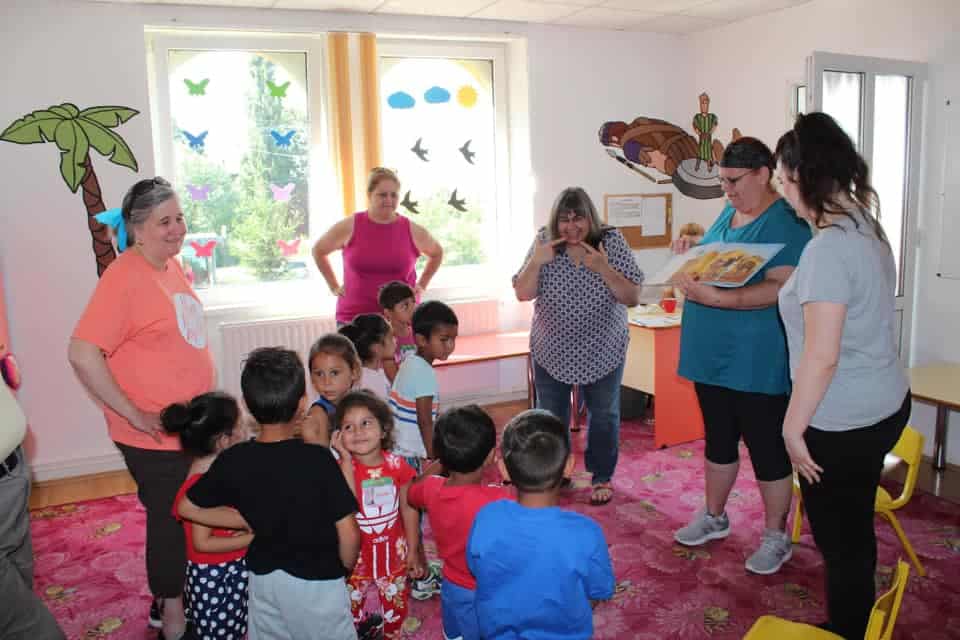Romania
Point of Hope Development Center

The Point of Hope Development Center (POH) is located in Tarneveni, Romania. The school helps educate 120 children on a daily basis. This school was designed to meet the needs of this Roma community. The typical child who attends the POH comes from a very poor and under-served family. The school provides many essential services:
- Education
- Food
- Hot showers
- Medicine
- Hygiene training
- Christian Education & Bible Study
The POH has 3 different programs that operate on a daily basis at the site.
Preschool Day Center– children as young as three years-old begin their preschool education here. Children will get three years of preschool education before going to the public school at age six. Each child receives a hot breakfast and lunch before returning home at noon.
After-school Program– children that attend the local public school (grades 1st-4th) will come to the POH at 12:30 for lunch. The kids will then do their homework under the careful eye of a teaching assistant. Kids will also have time to do other fun activities and have Bible teaching.
Before-school Program– children in the 5th through 8th grades come to the POH at 8:30 am. Kids will start the day with a hot breakfast followed by time to do their homework. These older kids will also have the opportunity to spend time in the life-skill development rooms before heading to the public school at 1:00.
The program is operated by Fundatia Buckner. They have been operating in Romania since 1997. Another Child Foundation partners with Fundatia Buckner by funding a large portion of the operating costs at the Point of Hope Development Center.
To support the ongoing work being done at the Point of Hope Development Center in Tarneveni, Romania all you have to do is click the Become a Voice Partner image at the bottom of this page.
Mission Trips to Romania
Types of Trips
Vacation Bible School– each July a mission team will take kids from the Point of Hope Center to the Harghita Christian Camp for a week of fun and faith exploration. This beautiful mountain camp is the perfect setting for a young child to learn about their faith and deepen relationships with friends and very Lord.
Humanitarian Aid Distribution– each fall a mission team will be sent to Romania to serve children outside of the Point of Hope Center. The team will typically deliver shoes, socks and other vital humanitarian aid to children across the Transylvania region of Romania. This aid is used as a tool to bring the Gospel to children who find themselves living in poverty.
Community Outreach– additional teams are sent to Romania throughout the year to assist the ongoing ministry being done by our ministry partner Fundatia Buckner. Teams will work in the Tarneveni community to assist families. Teams will also go home to home visiting and praying for families in adverse conditions who need a bit of encouragement.
You can become a Voice Partner and a Voice for the Voiceless by simply abiding in the what the Lord calls us to do throughout the Bible. Your support will go a long way in encouraging children and staff members that God is real and very much alive! Your support is needed TODAY! Tomorrow isn’t promised to anyone. But the children your support will help need your help TODAY!

To reach, teach, and transform the lives of orphaned and at-risk children.
© 2024 Another Child Foundation
Important Links
Social Links
ACF is a 501(c)(3) tax-exempt organization
View our latest newsletter here.


